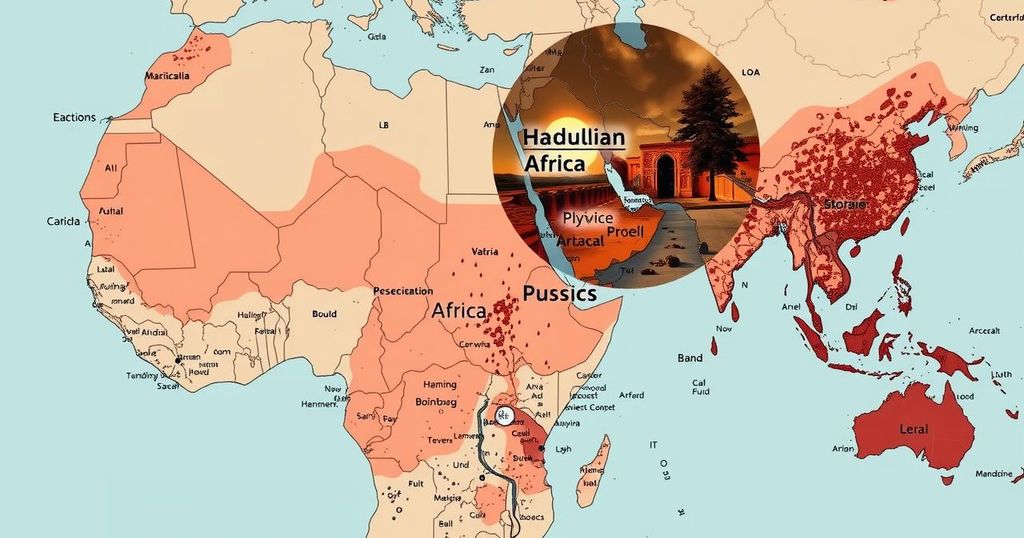Central Africa Facing Multidimensional Crises: A Call for International Solidarity

Central Africa is undergoing severe crises driven by climate shocks, humanitarian emergencies, and political divisions. Over three million people have been displaced this year alone, and inadequate international funding exacerbates these issues. As countries prepare for upcoming elections, the UN urges greater international support and cooperation to foster stability and resilience in the region.
Central Africa is currently facing a multitude of crises, as highlighted by Abdou Abarry, the United Nations Special Representative for the region. In a recent address to ambassadors at the Security Council, he underscored the dire situation that has arisen due to security threats, climate shocks, and political unrest. Over three million individuals have been displaced by disasters and extreme weather this year, exacerbating an already fragile socio-economic landscape and necessitating stronger climate action.
The Congo Basin forest, regarded as the ‘second green lung’ of the planet for its carbon dioxide absorption capabilities, was acknowledged as critical during COP29. However, international climate financing remains insufficient, with less than 15 percent of financial commitments being realized. Humanitarian conditions have similarly deteriorated due to population displacements and health crises, particularly in the Democratic Republic of Congo (DRC). Abarry stressed the urgent need for the international community to enhance support, stating that current assistance levels are inadequate to meet the significant humanitarian demands.
In terms of political developments, Mr. Abarry discussed the recent legislative elections in Rwanda and noted that several other nations, including Burundi, Cameroon, Gabon, and the Central African Republic, are scheduled to hold elections in the coming year. Countries like Chad and Gabon have sought electoral support from the United Nations, demonstrating confidence in the organization’s role.
With respect to regional security, Abarry emphasized the necessity of addressing insurgencies, specifically in the Lake Chad Basin, where Boko Haram affiliates pose a threat. He mentioned a recent UN mission advocating for the strengthening of the Multinational Joint Task Force as a vital component of regional stability. Furthermore, peaceful resolutions of disputes are underway, as evidenced by Gabon and Equatorial Guinea’s decision to take their border dispute to the International Court of Justice.
Looking forward, Abarry reiterated the importance of international funding focused on climate resilience and humanitarian aid. He announced that the Economic Community of Central African States (ECCAS), alongside UNOCA, will convene a summit in February 2025 to address these pressing issues. In conclusion, he expressed hope for a future characterized by peace, justice, and prosperity, underpinned by renewed multilateral cooperation aligned with the principles of the UN Charter and the Pact for the Future.
The Central African region is experiencing a convergence of crises that include climate impacts, humanitarian emergencies, and political instability. Such challenges have resulted in significant humanitarian needs, including displacement of populations and health threats, compounded by inadequate international funding for climate action. These issues are further complicated by impending electoral processes and ongoing conflicts, necessitating a cohesive approach to political stability and security in the region. The UN has been actively involved in addressing these multifaceted challenges and fostering collaboration among member states to promote peace and resilience in Central Africa.
In summary, the Central Africa region is facing critical challenges that require urgent attention from the international community. With millions displaced and humanitarian conditions worsening, concerted efforts are essential to assist affected populations and enhance climate resilience. Political stability will also be crucial as several countries prepare for elections, and ongoing insurgencies pose threats to security. The upcoming ECCAS summit in February 2025 presents an opportunity to align regional efforts with global support for a more stable and prosperous future.
Original Source: news.un.org






